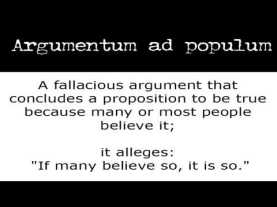When grace was heard with piercing power,
Enough to break my soul that hour
What could be done, but lift my eyes
To see the One who heard my cries
The wood, the nails! The blood and wails!
What love unveiled from such travails?
Can any person, place, or thing
Divide this hope that I now sing?
I have this last thing yet to say,
No harm could cast me from His way
My friends, this is a free and voluntary glimpse into how I once spoke about faith in Jesus. This was a poem of worship. A poem of my deepest thanks and gratitude relating to my previous testimony. I really really believed that Christ was real and that He was my all. I don’t seek to ignore this about myself. I don’t seek to bury my past. So, how is it that a belief in God that was this deeply rooted within my life ultimately led me to doubt?
It came out of what I can best describe as the struggle for assurance. If faith was to remain real in my own life, it meant that what ultimately makes faith meaningful and reliable is a sense of assurance. A need for clear evidence. As I fought, labored, and prayed for ten years straight, I called out to the vast unknown, and the reality of what I do not know ultimately became more prominent within my thinking than an ability to maintain the faith.
This was also accompanied very much by personal trials. Personal trials that challenged me to think profoundly differently over a period of time about what I was doing with my life. In my view, trials do in fact test faith. They call upon us to evaluate our personal sense of certainty and knowledge. A very justified and legitimate thing to do I might add.
Belief in God, as I have learned, is very much a state of mind. It would be wrong to not compare it to other states of mind that we can experience in life. When we were young we had the disposition to believe and accept all kinds of ideas. Think about ghost stories, the monster under the bed, or aliens from other planets? These kinds of ideas tap into something. They tap into something within our cognitive make-up. We either have a disposition to believe in supernatural and/or paranormal ideas, or it is possible to either later modify them, or even discard them altogether.
It’s a delicate process and I am not convinced that a deep understanding of how we know what we know plays a large role in this. When we ask ourselves how we know what we think we know, it is a challenge, rather, an attempt to pinpoint what exactly tips us to either believe or doubt in the existence of God. I can pinpoint and tell my audience exactly what gave me a sense of assurance before I lost it. What made me assured of my faith was a profound sense of emotional comfort, and I would even add, emotional experiences that derived from heartfelt worship and a sense of daily surrender.
You wanna talk about a guy that was brought to tears and felt the goosebumps? This was part of a feedback loop that largely contributed to my sense of certainty until I realized it and discerned it exactly for what it was. This sense of transcendence is not unique to the Christian faith. It is actually quite universal across the board. Yes, I, as an Atheist, still feel that way when I consider the majesty and vastness of this universe.
I try to talk about it with regard to what I can pinpoint for sure. What Science teaches me is that there is not an atom in my body that didn’t once come from previously existing stars. What I can appreciate for sure is that somehow, life comes from non-life. Not only does life come from non-life but it eventually returns to that state. I can’t presume to know any more than that, but I know that this is precisely where our human sense of intuition diverges sharply.
This sense of intuition goes on to be largely shaped by our varying cultures in which many different religions are born. A person of faith needs to grasp this. There is an undeniable link here. This sense of guidance and greater wisdom from a transcendent being (or beings), when we narrow it down, is largely linked by what our families, communities, and larger cultures come to accept as normative. Christianity is a most unnatural and non-normative set of beliefs when presented to Muslims, Orthodox Jews, or even Hindus.
I find it very interesting just how polytheistic religions have been for centuries. In fact, there is much Archaeological evidence that suggests that the predominant view of most ancients Jews, within the time that the Bible was written, was polytheistic. Jewish culture, as in, the Jewish mindset pertaining to how to think about religion was polytheistic. Think about it, what this means is that there are competing human beings, both past and present, that intuit more than just one God. It may seem normative to boil God beliefs into one Monotheistic God, but for billions of other people in this same world, it is not natural to think that way.
Believers in one God, many gods, or no gods need to decide how to best explain this phenomenon. How wise it is to hold onto revelation when there are a myriad of insights that we can gain historically and psychologically about these matters? My overall point is that conforming to doctrine isn’t necessarily best squared with the facts. The facts may contradict doctrine. Are we prepared to approach these questions with an open mind?
If there is anything I can encourage, I would at least like to encourage a greater willingness to approach these questions with an open mind. My audience doesn’t have to agree with me. I’m just one guy who’s been thinking about these things. I’ll leave my readers with one last question, can you identify what shapes your own state of mind? What contributes most to your sense of why God seems real to you? Why do you personally believe in one or more gods?




